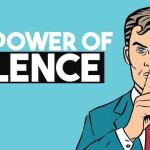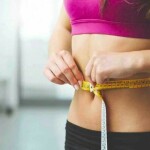When you're stuck with dull hair, ads will have you believing in all those magical shampoos and conditioners, but what if your hair is dead? This won't bring any change. Water or diet will undoubtedly affect the health of your hair, which requires nutrition quickly. We'll discuss the top 10 vitamins and nutrients that can promote hair growth. We're talking about all of that and more.
Vitamin D
A suggested vitamin D deficiency has been linked with this type of hair loss. If you're already low on vitamin D, alopecia can be even worse. A study found that typical female baldness is also linked to low vitamin D levels. It may start with the part of your hair getting whiter or thinning hair at the temples. Despite studies showing a link between vitamin D and hair loss, there was a large-scale study that stated vitamin D is not related to hair loss in alopecia. This means your body needs something more than vitamin D to restore its hair health. Vitamin D can help strengthen the hair follicle and prevent it from uprooting. It also maintains the balance of calcium and phosphorus. The reason you've had to stop doing it is that it damaged your hair. If you visit the doctor for hair troubles, the first thing they usually do is blood work.
That'll give you an idea of your vitamin D level. A healthy adult requires 600 international units or 15 micrograms of vitamin D per day. If you've got a low vitamin D count, it doesn't mean you'll have to take vitamin D supplements for the rest of your life. Your doctor will probably put you on these supplements for a few weeks and then assess you again to see if changes need to be made. You can also try natural foods that are the best sources of vitamins. These include fish, mushrooms, and egg yolk, as well as fortified orange juice and milk. How much sun do you get? Sunlight triggers your body's cells to naturally produce this vitamin. Don't forget to wear sunscreen when you're outside.
Overexposure can lead to skin damage. Vitamin D deficiency can also cause insomnia, muscle fatigue, weakness, and hair loss. Vitamin D2 is found in vegetable sources, while vitamin D3 is obtained from sunlight and eggs. Most supplements will have vitamin D3 in them. You have to be cautious about how much vitamin D you consume each day. While vitamin D toxicity is rare, it can lead to severe complications. An excessively high dose of 50 000 international units can be dangerous for your body.
Vitamin B
A large number of young people are suffering from hair loss regardless of genetics. Hormonal imbalance, stress, and hygiene are all indicators of nutritional deficiency, particularly vitamin bloating. Dermatologists and hair doctors consider 50 to 100 strands of hair per day to be normal. Hair is in a continuous cycle of growth, repair, and shedding. B-complex vitamins are essential for maintaining the health of your nerves. They are b1, b2, b3, b5, b6, b7, b8, and b12.
Nobody likes unnecessary medication. If you're deficient in this group, your first aim should be to level up through natural food sources. Besides whole grains and leafy green vegetables, poultry, fish, eggs, beans, legumes, and avocados should be your go-to foods. If your diet is well balanced, you don't need to worry as much. Unlike vitamin D, there is no vitamin B toxicity. Your body's b complex is water-soluble, meaning your body simply uses whatever is necessary and the extra vitamin is flushed out through the urine. Don't shy away from having this supplement if you're dependent on plant-based nutrition or certain medications. Pregnant women should also have it to help with any digestive problems.
Vitamin B12
If you're low on b12, you're going to feel tired and you can lose your hair. You need to consume around 2 micrograms of b12 per day, not just to stay healthy but also for great. Pregnant women and breastfeeding mothers require around 3 micrograms a day. While few doctors believe in these magic vitamins, some studies have shown evidence of a link between b12 levels and hair loss.
However, it won't hurt to get a bit more b12 in your life. Another name for this vitamin is biotin. This B vitamin is known for helping to strengthen your hair. It's been proven through various studies that low levels of biotin can make you go bald. It helps in the synthesis of hormones and the production of red blood cells. It also helps in the cell growth of hair and increases the blood supply to the hair follicles. This is going to make your hair strong and improve its texture. This is the only vitamin that can be stored in small quantities in your body despite belonging to a water-soluble group.
Vitamin B7
Biotin is secreted in the gut flora and stored in small quantities. As a result, the vitamin can be extremely beneficial for those who are already deficient in vitamin B7. Before we continue, here are 15 symptoms of vitamin B12 deficiency. Back to the vitamins that help hair growth. This fat-soluble vitamin can protect your body's cells from free radicals and oxidative stress. Free radicals can mess with your DNA, RNA, and protein synthesis. This vitamin also improves the blood circulation in your scalp, reduces hair loss, and promotes new hair growth all at once.
Vitamin E
The best source of vitamin E in your diet is vegetable oil. The pharmaceutical markets have made vitamin capsules and oils available for those who are deficient. Having these supplements regularly can help nourish your scalp, but some people choose to rub vitamin E oil directly onto their scalp so it can speed up hair growth. However, there's no scientific evidence to support this theory, and it may end up hurting you too much. Vitamin E can cause you to lose more hair. Nevertheless, studies have found that people who used moderate-vitamin E supplements showed an improvement in both alopecia and hair thinning. You may have great hair and be wondering what you can do to keep it.
Vitamin A
This way is where vitamin A enters the picture. A lack of Vitamin A can cause your hair to become frizzy, dull, and unmanageable. It keeps the roots of your hair soft and supple by helping produce sebum. This is the natural oil that prevents your hair from becoming too dry. Vitamin A or retinol supplements are easily available, but make sure you get them in their natural forms through foods such as fruits and vegetables. Too much vitamin A can cause hair loss.
Vitamin C
This vitamin is mostly neglected when it comes to hair care. Vitamin C deficiency can give you hairs that look like corkscrews. red bell peppers. Citrus fruits are great sources of vitamin C. Supplemental vitamin C is also important if your diet is missing those six other important nutrients. Folate. Not having enough folate can result in iron deficiency. Anaemia Women who suffer from this kind of anemia will experience hair loss without folate. Your blood won't carry enough oxygen without oxygen. This means bad luck since none of the tissues can function to their full capacity.
Magnesium
You also need magnesium as it actively participates in the biochemical reaction of your hair. Magnesium deficiency can cause both fatigue and hair loss. Omega-3 fatty acids Next, you need to pay special attention to omega-3 fatty acids. You might get it from natural sources like salmon or cod. Oysters with liver oil Flax seeds This fatty acid is anti-inflammatory, which gives volume to your hair.
Zinc
Zinc is another trace element that helps strengthen your cells. whole grains and seafood nuts and seeds are natural sources of zinc proteins. Body growth and cell repair cannot occur without protein-rich healthy tissue to prevent unwanted hair loss. is made up of a protein called keratin. Without it, you won't form new hair cells, and maintaining the existing ones will also be very difficult.
Protein
There are just so many reasons to add protein to your diet. Should you be having more cheese, chicken, or beans? Shall we keep the conversation going with a couple more protein-related videos? You can also see what eating more protein does for your body by taking a look at these 20 protein-rich foods you should be eating. Or better yet, watch both to get more insight into your proteins. Do you know of any other foods that improve hair growth? Let us know in the comments below.
Conclusion
Vitamin D can help strengthen the hair follicle and prevent it from uprooting. A healthy adult requires 600 international units or 15 micrograms of vitamin D per day. Vitamin D2 is found in vegetable sources, while vitamin D3 is obtained from sunlight and eggs. Dermatologists and hair doctors consider 50 to 100 strands of hair per day to be normal. B-complex vitamins are essential for maintaining the health of your nerves.
You need to consume around 2 micrograms of b12 per day, not just to stay healthy but also for great hair. Vitamin E is the best source of vitamin E in your diet. This fat-soluble vitamin can protect your body's cells from free radicals and oxidative stress. Some people choose to rub vitamin E oil directly onto their scalp so it can speed up hair growth. Too much vitamin A can cause hair loss.
Vitamin C deficiency can give you hairs that look like corkscrews. Not having enough folate can result in iron deficiency. Women who suffer from anemia will experience hair loss if they don't take folate supplements.








